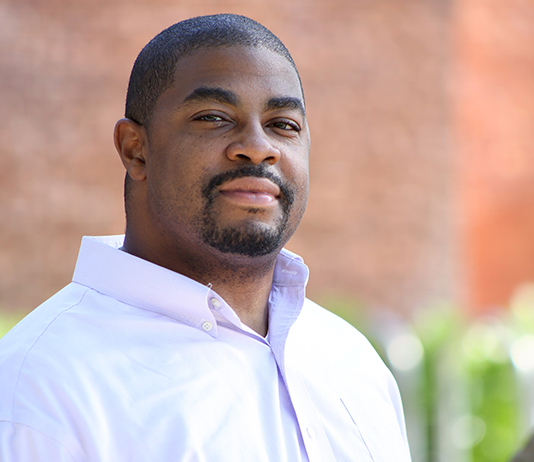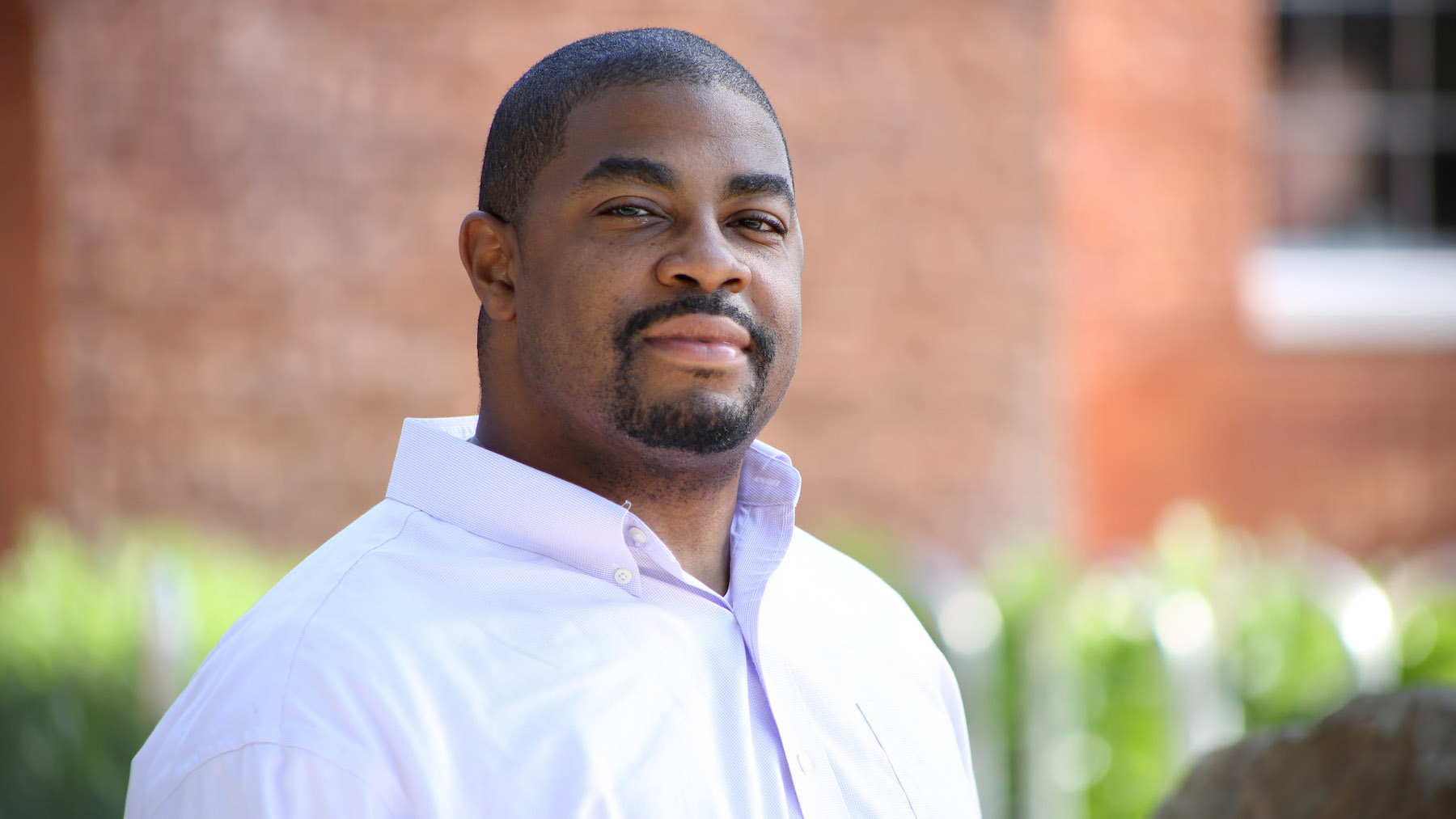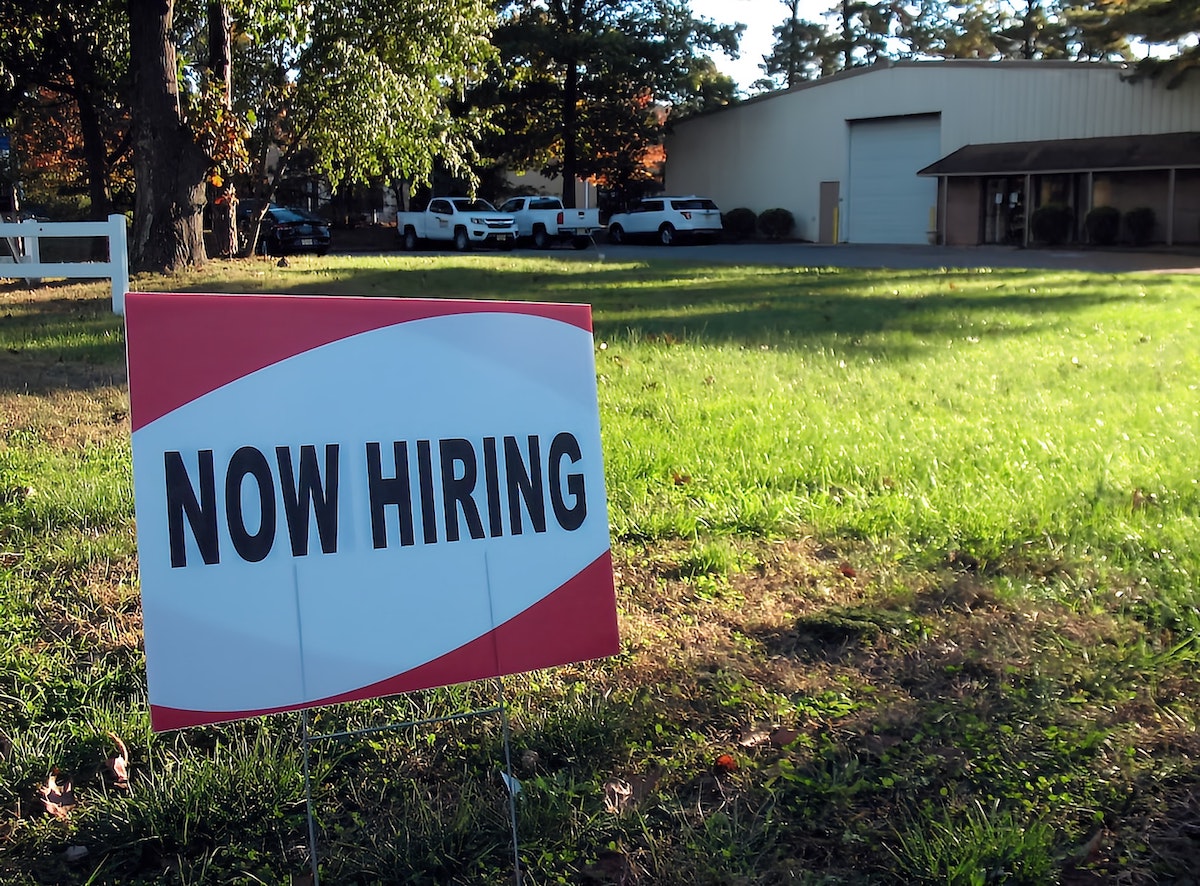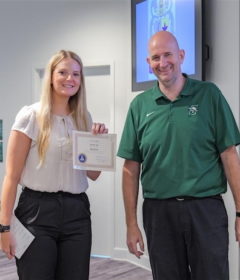Professor Randall Croom talks about “the Great Reassessment”


More than 4.5 million people decided to quit their jobs in November, the highest number since the government began tracking the data two decades ago.
Randall Croom, PhD, an assistant professor of Management, studies workplace trends and does not refer to this as “the Great Resignation,” like many do. For him, it’s “the Great Reassessment,” as workers evaluate their happiness, fulfillment and job satisfaction in the midst of a global pandemic.
“I think those kinds of changes are here to stay and they’re not a result of the pandemic,” Croom said. “This movement has been coming for some time, but I think that the pandemic has accelerated people’s reassessment of their work and the value of it.”
 Croom began looking at the trend even before the pandemic began here in early 2020. Workers have been voluntarily leaving their jobs in growing numbers since 2009. By last July, the resignations were reaching record numbers month after month.
Croom began looking at the trend even before the pandemic began here in early 2020. Workers have been voluntarily leaving their jobs in growing numbers since 2009. By last July, the resignations were reaching record numbers month after month.
The trend has dramatically altered not only the job market but also parts of the economy. Labor shortages have disrupted supply chains, for example, and left employers scrambling for help in the service industry and fast-food restaurants.
Many of those quitting are low-wage workers, who see better prospects for higher wages in the current job market. Others decided to retire. In addition, more than 800,000 Americans have died during the pandemic, creating more job openings. And lastly, some people are leaving because of the way their employers have treated them during the pandemic.
“Right now, it’s a seller’s market in terms of labor,” Croom added.
Croom attributes workers’ reassessment to a number of factors. People under age 40 have lived through many domestic crises and periods of social unrest, from the 9/11 terrorist attacks to school shootings, increased awareness of social injustices and now the global pandemic. Such events often are a time for reassessment.
These workers also may have seen their parents laid off and unhappy in their jobs. They may say, “I don’t want that kind of work life for myself,” he wrote in a slideshow called, “The Great Reassessment.”
 As competition grows for workers, companies may be forced to offer more remote and hybrid work positions to find talented employees nationwide. Job postings for remote work, for instance, have increased 500% on LinkedIn since the pandemic began, according to his slideshow.
As competition grows for workers, companies may be forced to offer more remote and hybrid work positions to find talented employees nationwide. Job postings for remote work, for instance, have increased 500% on LinkedIn since the pandemic began, according to his slideshow.
Croom focuses his research on such workplace trends. For example, he has examined why some mothers start their own businesses as “mompreneurs,” allowing them to more easily balance their roles as a business person and a mother.
He also is studying how employers treat their employees after they have given their notice of resignation and before they actually leave. Harvard Business Review says employers should treat these workers like loyal alumni. But in his interviews with employees, Croom hears a far different story.
For employers, resignations “can feel like a repudiation of the place and I was just surprised that people were being kicked on the way out the door,” he said.
“If we thought about people who used to work in our place as alums of our institutions, then one of the ways that you get new people, new recruits, can come from people who have had experiences with you and they’re talking you up,” he explained.
For his next project, Croom plans to examine “work as a secular religion” while taking a sabbatical leave soon from teaching. He has noticed how the modern workplace can adopt rituals similar to those followed by religious institutions.
“Instead of having communion, you’re having morning coffee,” he said. “Instead of a pastor, you have a president, a CEO or a manager. You are sometimes just like people who evangelize or proselytize for religion. You’re going to be out there recruiting for new people to join your organization and there’s going to be a culture in the way that people need to see things.”
His projects share similar workplace themes in trying to understand why workers and employers make certain decisions. “I’ve been very interested in people’s experiences, how they’re treated and why they are treated that way, for a really long time. This great reassessment is still nascent for me, but it’s really along the lines of that kind of thinking.”
-Cory Lancaster


